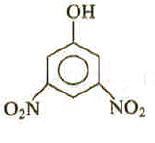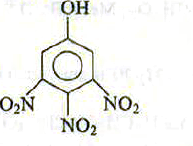Most important stage for the evolution of new species is
Leptotene
Zygotene
Pachytene
Diplotene
The correct Answer is:C
Step-by-Step Solution:
1. Understanding the Question:
The question asks for the most important stage for the evolution of new species among the options provided: leptotin, zygotin, pachyten, and diplotin.
2. Identifying the Context:
All the options are substages of Prophase I in meiosis, which is a type of cell division that reduces the chromosome number from diploid to haploid.
3. Explaining Meiosis:
Meiosis consists of two main stages: Meiosis I and Meiosis II. Prophase I is further divided into five substages: leptotin, zygotin, pachyten, diplotin, and diakinesis.
4. Analyzing Each Substage:
- Leptotin: Chromosomes start to become visible, but no crossing over occurs.
- Zygotin: Homologous chromosomes pair up (synapsis) but crossing over has not yet happened.
- Pachyten: This is where crossing over occurs, leading to genetic recombination.
- Diplotin: Crossing over is completed, and the chromosomes start to separate.
5. Identifying the Key Stage:
The pachyten stage is crucial because it is during this stage that crossing over takes place. This process leads to genetic variation, which is essential for the evolution of new species.
6. Conclusion:
Therefore, the most important stage for the evolution of new species is the pachyten stage.
Final Answer: Pachyten
---
The question asks for the most important stage for the evolution of new species among the options provided: leptotin, zygotin, pachyten, and diplotin.
All the options are substages of Prophase I in meiosis, which is a type of cell division that reduces the chromosome number from diploid to haploid.
Meiosis consists of two main stages: Meiosis I and Meiosis II. Prophase I is further divided into five substages: leptotin, zygotin, pachyten, diplotin, and diakinesis.
- Leptotin: Chromosomes start to become visible, but no crossing over occurs.
- Zygotin: Homologous chromosomes pair up (synapsis) but crossing over has not yet happened.
- Pachyten: This is where crossing over occurs, leading to genetic recombination.
- Diplotin: Crossing over is completed, and the chromosomes start to separate.
The pachyten stage is crucial because it is during this stage that crossing over takes place. This process leads to genetic variation, which is essential for the evolution of new species.
Therefore, the most important stage for the evolution of new species is the pachyten stage.
Topper's Solved these Questions
- CELL CYCLE AND CELL DIVISIONBOOK - AAKASH SERIESCHAPTER - CELL CYCLE AND CELL DIVISIONEXERCISE - Exercise-II
116 Videos
- CELL CYCLE AND CELL DIVISIONBOOK - AAKASH SERIESCHAPTER - CELL CYCLE AND CELL DIVISIONEXERCISE - Exercise-III
18 Videos
- BIOMOLECULESBOOK - AAKASH SERIESCHAPTER - BIOMOLECULESEXERCISE - EXERCISE - III (Previous AIPMT/NEET Questions) (Enzymes)
11 Videos
- ECOSYSTEMBOOK - AAKASH SERIESCHAPTER - ECOSYSTEMEXERCISE - EXERCISE-III (PREVIOUS AIPMT/NEET QUESTIONS)
37 Videos
Similar Questions
Knowledge Check
Each of us is part of the ongoing evolution of the species which of the following occurrences would have the greatest impact on the future biological evolution of the human population?
AA mutation occurs in one of your sperm or egg cellsBYou do exercise every day so that you stay physically fit and healthy.CYou move to kerala, the state of highest medical facilities and literacy.DYou encourage your children to develop their intellectual abilities.The most steam volatile species is :
A B
B C
C D
D
Most important causative pollutant is
View SolutionWhich is the most important factor for continuity of a species from evolutionary point of view?
View SolutionWhich is the most important factor for continuity of a species from evolutionary point of view?
View SolutionAdaptations significant for the evolution of species and reason of diversity are
View SolutionName and explain the phenomenon that has resulted in the evolution of such diverse species in the region.
View SolutionMost resistant stage in the life cycle of angiosperms is its:
View Solution
